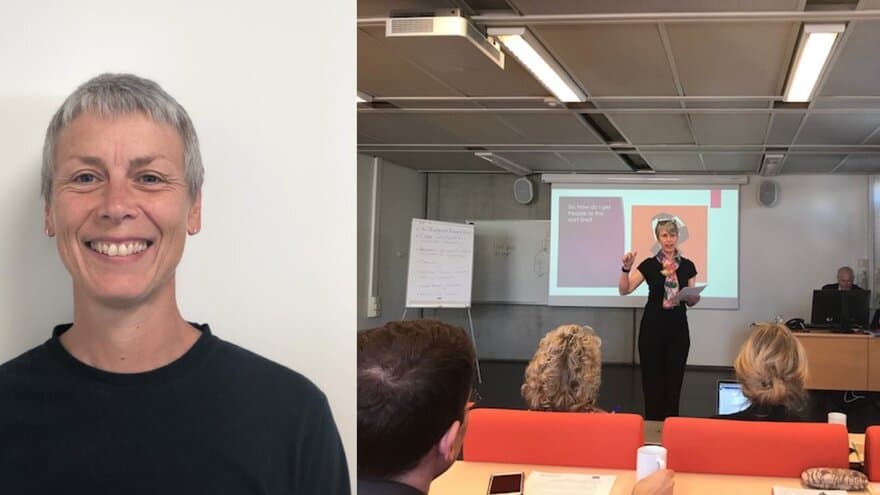When Cecilia became a PEN-member, the network had been running for almost a year. She was a serving Police Officer working for the UN Mission in South Sudan and was introduced to the network by Tor Damkås, who had a key role in creating the network. Soon after she joined, there was a workshop with some of the PEN-members. One of the things that struck her the most was how different the cultures of academic approaches, as well as the culture of police officers, or practitioners, are.
“The practitioners were eager to get started, they were more like ‘We might have a plan, but we kind of work it out as we go along,’ – it was much about doing. And then on the other hand, the academics were more like ‘We’ve read this, we’ve thought about this or that,’ which started the conversation about the two different approaches. It was really interesting, not to mention useful!” she says.
Cecilia suggests that the conversations they had about the two approaches bridged the gaps between the two, and instead of being polarized, she says “we came together and understood much more – we had useful discussions about how to approach different problems.”
Cecilia recalls going to another workshop in Portugal with colleagues who were PEN-members. She said that it was an interesting crossover between practitioners, particularly because practitioners from many different countries were present. One of the things she valued about this was that it allowed them to learn more about the many different policing cultures and develop new ideas.
Another aspect of being a PEN-member that she truly enjoyed was to see the research getting written up into papers and workshops and being able to review them and bring input. She particularly remembers working with PHD-student, Erika Rojas, who shared a number of papers on peace in El Salvador with her. “I remember them so well because they were so interesting, and it was a great opportunity to be able to make suggestions, especially from the practitioner perspective,” she says and calls the experience meaningful.
Although the project and the PEN had a steady stream over the four years of engagement – whether it was seminars, workshops, conferences, or just discussions, sending papers back and forth, preparing the training material and the handbook– the Covid-19 pandemic happened as the project started to come to a close, which changed a lot of the upcoming plans they had. However, she was asked to host the project’s final online conference.
“I got a bit nervous thinking what I had just said yes to, but it was brilliant – absolutely brilliant! After that, we thought ‘We can’t stop now, there is so much value in what’s being produced, so how can we sustain the PEN and how can the PEN support the work that is being produced and disseminated; how can it be used in the future?’” she says.
One of the things she admired about being a PEN-member was that it focused on an approach to policing that she has used professionally, that she has a lot of confidence in. “When you really believe in something and see that it works, being able to be part of something that encourages that and makes it accessible to even more people – it’s very satisfying,” she says.
Cecilia also enjoyed the experience of working with PEN-members from other countries, the challenge of being confronted with other countries, and the assumptions one might have towards other countries. She found the experience to be very grounding because it reminded her to always challenge herself and her assumptions, as well as the importance of learning the contexts and the areas one might be working on.
“There was a lot that we could learn from one another. And later, when I have wanted ideas or access to resources, I have used the network to get it,” she says.
She thinks the project has had a massive impact by itself but is excited about staying involved in the project today by being a member of the Advisory Group for the ICT4Cop Center, and exploring different ways that the PEN can be utilized in the future.
